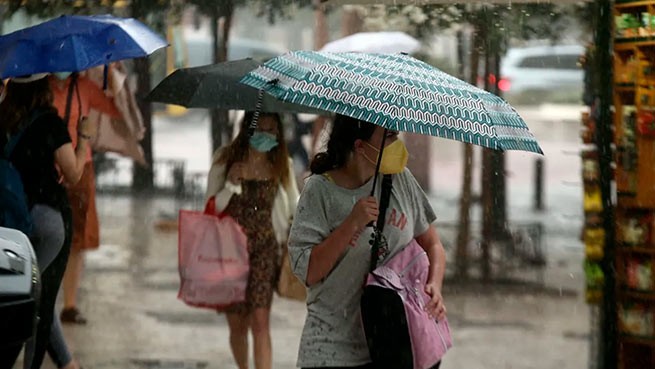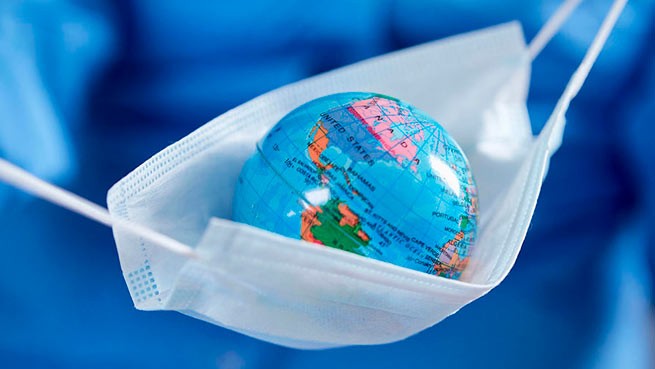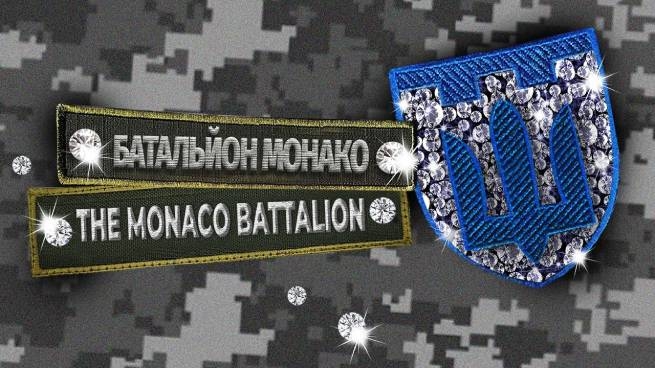The bloody war in Ukraine has been going on for almost 10 months. Millions of refugees were forced to leave their homes, and Europe hospitably provided them with protection, assistance and financial support. But there is another category of Ukrainian refugees,
who left their homeland and, together with their families, have been living comfortably and comfortably on the Cote d’Azur in France since the first day of the Russian invasion, or even earlier. These are oligarchs loyal to the aggressor country, who are called the “Monaco Battalion” in their homeland. Who are they? How comfortable are they in this situation, and why are some of them interested in the Ukrainian “State Bureau of Investigation” (SBI – an analogue of the FBI in the United States and the Federal Criminal Office in Germany)?
Ukrainian SBI spokeswoman Tatyana Sapyan was forced to postpone interviews with DW several times due to rocket attacks. However, she intends to give it at all costs, sharing the information received during the investigation. According to the data received, while in Ukraine people huddle in bomb shelters, the Armed Forces of Ukraine are suffering serious losses, and 10 million Ukrainians are fleeing the war in regions remote from the front of their country or abroad, some Ukrainian oligarchs, according to the media, are millionaires and even billionaires have left the country with their families. Some – shortly before the start of the Russian invasion on February 24th.
Almost 2,000 kilometers from Ukraine, on the Cote d’Azur in France, locals are surprised at the increased number of luxury limousines with Ukrainian numbers on the streets. The impression of this picture is absolutely not “joined” with the news from the country suffering from the invasion of Russia.
A Ukrainian blogger posted a photo online with several suitcases full of cash. More than 17 million US dollars and more than a million euros were found by Hungarian customs officers in luxury cars from Ukraine. When leaving the country, this money was not declared at the Ukrainian customs. Meanwhile, when crossing the border, it is permissible to carry no more than 10,000 euros in cash. Tatyana Sapyan confirmed publication DW that the investigation into this incident has been going on for months:
“Among the people that the SBI checked were government officials, businessmen, former members of the judiciary and even members of parliament. Did these people cross the border legally, and were they involved in money laundering?”
According to her, since mid-September, the investigation has been conducted against more than 80 people, today it continues against several dozen. At the height of the war, Ukrainian investigators are dealing with a very painful topic for their country: corruption, which persisted on a significant scale even after the pro-European protests on the Maidan, and circles, belonging to which people often have ties to Russia. International arrest warrants have already been issued against two super-rich “refugees” from Ukraine. However, Sapyan has little hope that they will ever be extradited to Ukraine:
“We know that if a person has a lot of money, he seeks to spend it on ensuring that he has influence on certain processes – not only in Ukraine, but also abroad.”
She confirms that six former or current deputies of the Verkhovna Rada are also under investigation. This summer, the President of Ukraine, by his decree, banned the activities of pro-Russian parties in the country – including the Opposition Platform – For Life, which had a faction in parliament. Interestingly, some of its MPs later founded a new group called Restoration of Ukraine, Oleksandr Salishchenko of Chestno, a Kiev-based NGO, told DW. With financial support from the West, the NGO analyzes the work of the Ukrainian parliament, primarily for corruption. The publication quotes Salishchenko:
“This new group of deputies was formed remotely. That is, the politicians who joined it were not in Ukraine and were not present in the plenary session hall or in the parliament building.”
Curiously, the digital work of the Ukrainian parliament, first during the coronavirus pandemic and now during the war, has allowed these deputies, who have been openly pro-Russian for years, to digitally sign all applications to join the new parliamentary group. Among them was a deputy who was elected to the Rada from the Opposition Platform – For Life party, Igor Abramovich.
In the summer of 2022, Abramovich “lit up” in a video of Ukrainian journalists who filmed him on the French Riviera after jogging in the company of a former high-ranking official of the Ukrainian financial supervisory authority. Abramovich lives comfortably near Nice, on the peninsula of Saint-Jean-Cap-Ferrat. This is the location of luxurious villas of the super-rich Europeans, where many properties have long been owned by Russians and Ukrainians.
According to Salishchenko, even outside of Ukraine, such deputies do not give up their attempts to influence the political situation in the country. Some of them are engaged in “remote” lawmaking and submit draft laws in digital form. The absence of deputies is not a legal basis for losing a mandate in Ukraine. However, the salary of “remotely working members of parliament” is not paid. Apparently, they cover their living expenses from other sources. At the same time, it is impossible to contact deputies living abroad. Apparently, with the start of the Russian invasion, the contact details of their parliamentary bureaus were removed from the Rada website.
The representative of the city administration of Nice, Véronique Borre, speaks of the presence of France and completely different refugees from Ukraine on the Cote d’Azur: “There are many women, mothers with children, or even grandmothers with grandchildren.”
From the first Monday after the start of the Russian invasion of Ukraine, the commissioner for refugees had to accommodate 500 Ukrainians a day who reached France through Hungary and Italy. In the shortest possible time, Nice had to form the largest in the country, after Paris and Strasbourg, a shelter for refugees from Ukraine. Borre is assisted in her work by Ukrainian Irina Bourdelle, who heads the Franco-Ukrainian cultural association in Nice. From the very beginning of the Russian invasion, the volunteer took care of Ukrainian refugees, providing them with food and providing psychological assistance to children.
She is simply infuriated by the fact that there is a company of allegedly corrupt Ukrainians “who take refuge on the Cote d’Azur and drive luxury cars” very close by. But she’s not surprised.
“There are things in Ukraine that were accepted and tolerated before the war. These people were not only part of the corrupt elite. They – we are sure of this – are responsible for this war in Ukraine, because they called on Russia to come to Ukraine. But the Ukrainian justice system will deal with this – after the war.”







More Stories
UK: controversial bill on deportation of migrants to Rwanda passed
Chaos in Paris due to Afghan demonstration
Why only a few Ukrainian refugees in Germany found work (video)